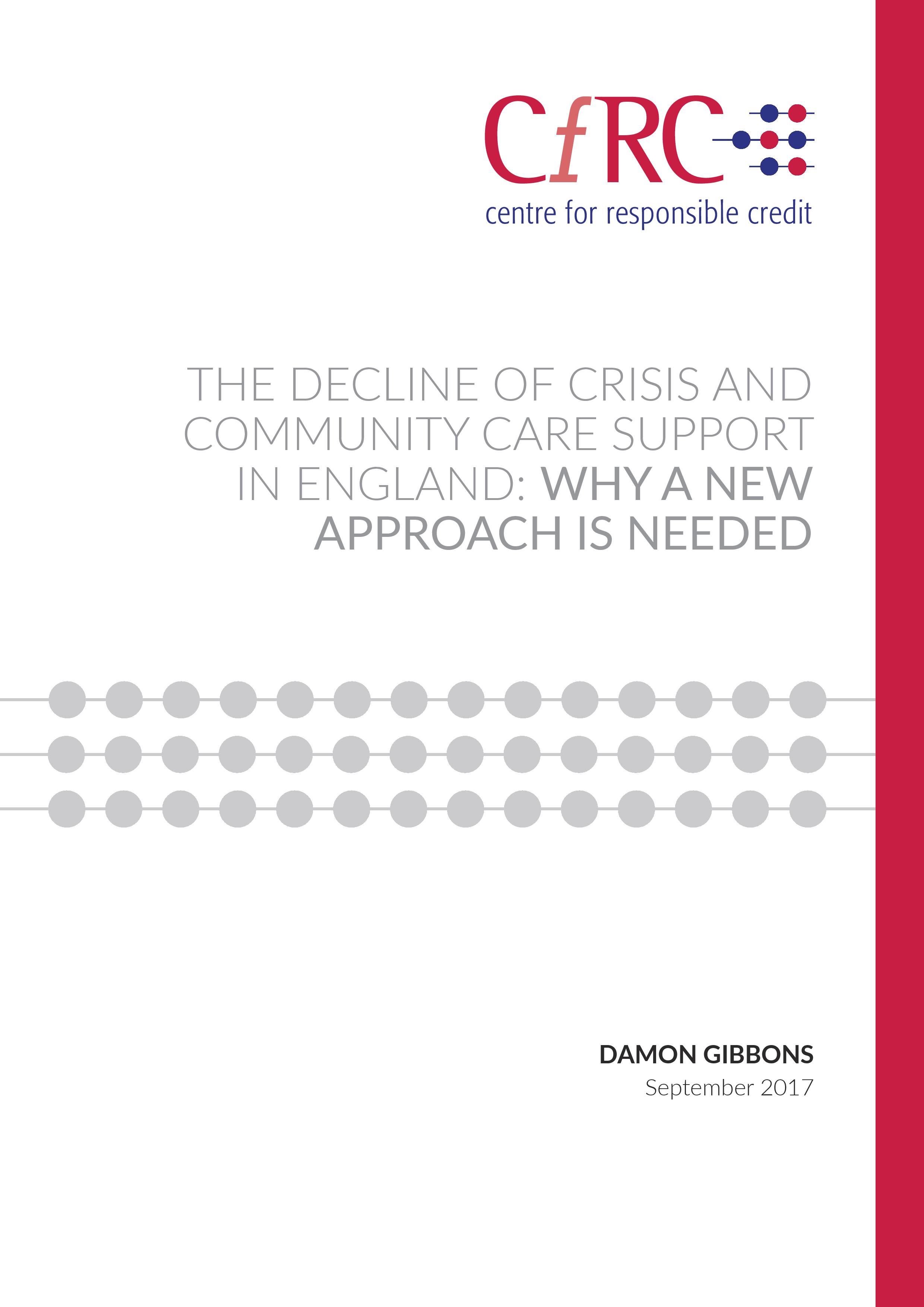A report published today finds that local welfare schemes are on the brink of collapse and argues the Government needs to act to help households in financial crisis.
The report – ‘The Decline of Local Welfare Schemes in England: why a new approach is needed’ – has been published today by the Centre for Responsible Credit (‘CfRC’). It follows an in-depth review of the outcomes from the Government’s decision to abolish Crisis Loans and Community Care Grants and its replacement of these with ‘local welfare schemes’. The report finds that the policy, adopted in 2013/14, has resulted in widespread cuts to the support that households receive when they experience a financial emergency or need help to live independently.
- Twenty six local authorities1 have now closed their schemes altogether;
- A further forty one authorities have cut back spending on their schemes by over 60 percent;
- Eleven of these have cut spending by over 80 percent and their schemes are now on the brink of collapse.
The cut backs, combined with benefit delays, are creating destitution. For example, an unemployed 56 year old man in Nottinghamshire (which closed its local welfare scheme in 2014/15) told the report author how he has had no money for eight weeks because of delays in processing his benefit claim; he has been forced to use food banks, can’t pay the rent, and is on the verge of being made homeless.
They are also making it harder for people to live independently. For example, a 46 year old woman in Oxfordshire (which closed its scheme in 2014), and who was re-housed after a lengthy period of homelessness, has been living in a flat without any cooking facilities or bed for four months.
The report has identified that cuts to local welfare schemes are particularly affecting people with long-term illnesses or disabilities; young people leaving care; women fleeing domestic violence; people with prior experience of homelessness; and frail elderly people returning to their homes after a stay in hospital or who are struggling to remain independent and avoid going into care homes. Cutting across these groups, the reduction in support is having a disproportionate impact on low income Black and Minority Ethnic communities.

